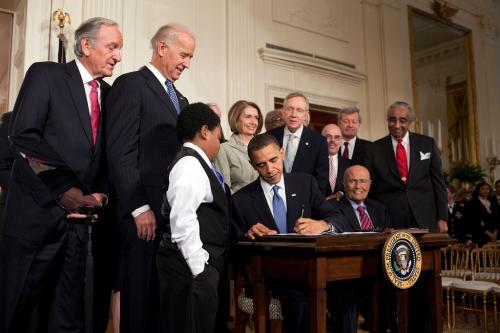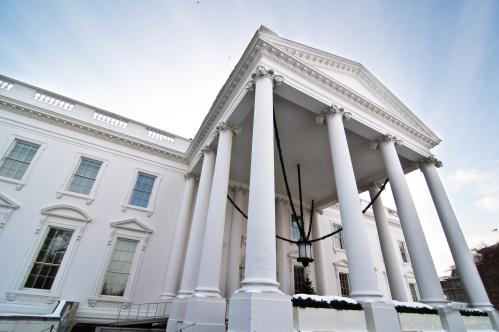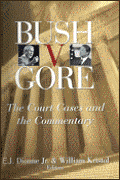The announcement that President Barack Obama’s official papers will be digitized is a break from tradition. It is clearly a nod to contemporary life, and some might view it as a welcome change from driving for miles to sift through paper documents in presidential libraries. But the decision to go digital rather than place the paper records in a research library has created a stir in the community of people who make a living doing research in presidential libraries. With presidential libraries already facing challenges, a transition to online-only resources could come at the cost of one of their greatest assets: the knowledge and commitment of the archivists, whose expertise in both the presidency and the organization of the collection is an immense resource for researchers.
Here’s an example of what might be lost in the changing approach to the presidential library.
By the time I arrived at the Dwight D. Eisenhower Library in Abilene, Kansas, rattled from driving a shaky rented Ford Focus alongside giant trucks on the wide and speedy Kansas interstate, I had some idea of what I was looking for. The Eisenhower Library was among my final stops for my book, Delivering the People’s Message: The Changing Politics of the Presidential Mandate. I had already done research at the Carter, LBJ, FDR, and Reagan libraries for the book (I would visit the Nixon Library about a year later). I’d mostly spent time in the files of presidents’ key advisors and speechwriters, as well as other members of their communications teams. I’d looked at speech drafts and materials surrounding reelection campaigns. With each library I visited, I started to put together a bigger picture of how presidents and their communications officials interpreted the elections that brought them to power.
Not for the first time, I found something unexpected—in this case, a draft of Ike’s 1953 address to a joint session of Congress (known colloquially as a State of the Union address even if not technically one because the president had not been in office for a year). An early draft of the speech (which the White House generally treated as a State of the Union) refers to the “overwhelming majority” that voted for the new administration. By the time the president delivered the speech, the election language had been toned down, referring to the promises of the election but not the vote totals.
I approached the archivist on duty to see if he had any ideas about how to find evidence to trace this change—who made it and why? Was there a record of the decision to change the words? The archivist jumped into the research with me, trying to think about whose papers might contain the evidence that would tell us why the change was made.
We never solved the mystery, but that experience stuck with me. Will there be archivists with this level of expertise and dedication in the future, working in far-flung presidential libraries? The backlog of unprocessed documents at the National Archives (of which the presidential libraries are a part) is not an encouraging sign that record-keeping is a national priority. The recent news that former president Barack Obama will have a “Presidential Center” without a research library onsite deepens this concern.
Presidential libraries have a complex purpose. As Anthony Clark, author of The Last Campaign, points out, they merge public purpose with partisan activities. It would probably be more efficient to collect papers and have them in a single location (a problem that is not limited to presidential records). Presidential foundations can be political and face clashing imperatives. On the other hand, these foundations can provide support for scholars (I have received funding for my research from foundations associated with the LBJ, Ford, JFK, and Truman libraries), usually with the requirement that the work they support will not be partisan and will contribute to knowledge about a specific subject or time period. Presidential libraries are an important source of historical material about party politics in addition to documents from the administration, often holding papers from periods adjacent to the administration in which the party was out of power (such as Democratic Party holdings at the Truman and JFK Libraries and Republican Party materials at the Ford Library).
A number of works of political science and history illustrate how the particular knowledge of a specific president, White House and time period can inform broader theories about political behavior. Some examples in political science, in addition to my book about mandates, include Dan Galvin’s analysis of presidential party-building and Elizabeth Saunders’ work on how leaders’ beliefs affect their decisions to engage in military interventions.
Historians also use presidential libraries in combination with other archival sources, linking texture and details from specific situations to pressing questions about American political history. Some recent examples include Michael Bowen’s history of struggles within the Republican Party in the late 1940s and early 1950s, Leah Wright Rigeur’s book about black Republicans, and Sam Rosenfeld’s account of how party elites shaped the polarized political world we now inhabit. I can’t speak for the process of other scholars as they sifted through presidential archives, but I can attest to the results.
The archivists I worked with were all very professional and non-partisan, though many had developed some sympathy for the cast of White House characters whose papers they were charged with preserving. But, at least in my case, this approach didn’t hinder my research. Rather, it allowed me to gain different perspectives and appreciate the human element of White House decision-making— it balanced out my training as a social scientist to think in terms of concepts and variables.
There are, of course, advantages to the digital approach that the Obama library has promised. Not all scholars have the time and research funds to visit one library, much less several of them for a single project. But a big part of the intellectual contribution of libraries is the deep expertise of the archival staffs, who understand how their collections are organized and can provide insight into the logic of the personnel and priorities reflected in them. Furthermore, every presidential library collection is organized slightly differently. This isn’t ideal, but it is consistent with the ways in which each presidency can vary in the structure and organization of staff and policy portfolios.
The digitization plans of the Obama library may prove to be a vital new turn in access and storage of presidential documents. But the system created in the 1930s by FDR has proven helpful to scholars and useful for creating knowledge. Like many other aspects of Obama’s presidency, the attempt to innovate might have solid reasoning behind it. But the effort to replace old practices with new ones may come at a steep cost.
The Brookings Institution is committed to quality, independence, and impact.
We are supported by a diverse array of funders. In line with our values and policies, each Brookings publication represents the sole views of its author(s).









Commentary
With Obama’s official papers living online, what might be lost?
May 31, 2019